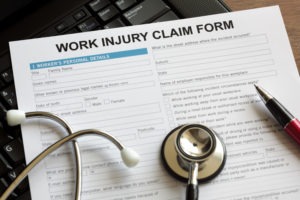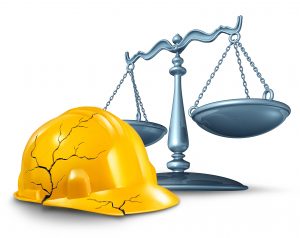
Workers’ comp cannot stop paying without notice. According to the Pennsylvania Department of Labor & Industry (DLI), the insurer responsible for issuing workers’ compensation payments must notify the injured party that their benefits have been terminated.
If you were injured on the job and are receiving workers’ compensation, you can continue to do so until you are fit to return to work. Once you are able to return to work, your employer may terminate your workers’ compensation benefits. However, they must notify you before ceasing payments.
Getting Workers’ Compensation Benefits
The Pennsylvania DPI explains how to apply for workers’ compensation benefits, how much you can receive, and what to do if your employer denies your claim.
You may be entitled to workers’ compensation benefits if you were physically injured or contracted a certain type of illness while doing your job. The Pennsylvania Workers’ Compensation Act provides a list regarding what types of illnesses may qualify for workers’ compensation coverage. They include various types of poisonings, cancers, and infections.
What Workers’ Compensation Covers
When you are injured on the job, workers’ compensation benefits are designed to help you meet your financial obligations while you recover from your injuries. Benefits you can claim through workers’ compensation include:
- Lost wages or reduced income potential
- Death benefits for dependents if a worker died as a result of their workplace injury
- Specific loss in the event that you have lost the use of all or a portion of a limb or digit or if your injury resulted in permanent hearing loss or severe disfigurement to the face, head, or neck
- Medical costs for treatment and rehabilitation related to the workplace injury, including medical treatment, surgery, medicine, hospital expenses, assistive devices, and prostheses
A workers’ compensation attorney can review your claim and help you determine which expenses you can include. They can also help you calculate and obtain expert opinions regarding the value of your lost wages and specific losses that do not have a set dollar value.
When to File Your Workers’ Compensation Claim
As soon as you become injured or sick, you should immediately report those details to your employer. From there, they are legally required to inform the Bureau of Workers’ Compensation (BWC) about the incident. If all goes well, your claim will be accepted. You will begin to receive two-thirds of your usual weekly wages. If you accept treatment from a doctor in your employer’s approved network, then you will not have to pay for some aspects of your medical care.
However, if your claim is denied, you can appeal to the Workers’ Compensation Office of Adjudication. An attorney familiar with Pennsylvania workers’ compensation claims and policies can help you navigate the appeals process.
40+ years of experience from strong, knowledgeable, compassionate attorneys.
Start A Free EvaluationWhen and Why Workers’ Compensation Benefits Stop
As you are recovering, you will receive regular care from a doctor. Depending on your employer, you may be free to choose whatever doctor you wish, or you may have to select one from a list of providers in your employer’s approved health care network.
Your doctor will provide you with treatment that works to address your condition. You must continue to see that doctor periodically for the next 90 days. Your workers’ compensation payments will continue until you are able to work again or until you find a new job that pays a comparable salary to your old one.
During your convalescence, your employer may offer you a new position that you are able to perform—or that they believe you are able to perform. You do not have to accept this offer, but rejecting it may prompt your employer to ask a workers’ compensation judge if they can stop your payments.
Other reasons for stopping workers’ compensation benefits may include:
- A doctor deems that you are fit to return to work
- A ruling from a workers’ compensation judge
- The employee agrees to stop benefits
Regardless of when, how, or why your employer stops payments, workers comp cannot stop paying without notice. Your employer or their insurer cannot stop paying you workers’ compensation benefits without telling you.
Follow Your Doctor’s Orders
It is important to follow your doctor’s instructions throughout the treatment and recovery period, even if you begin to feel better. Your workers’ compensation coverage depends largely on proving that you are incapable of working due to your injury. If you stop following your doctor’s advice, your employer could use this as evidence that you are no longer injured or that your injuries are not as severe as reported. Either way, you could risk losing the coverage you need for the duration of your recovery.
If your workers’ compensation benefits are stopped for any reason, a Pennsylvania workers’ compensation lawyer can help you understand your legal rights and determine your next steps.
We know you’re hurting. We can help. Free case evaluations, home and hospital visits.
Contact Us Now For HelpHow a Lawyer Can Help with Your PA Workers’ Compensation Case
If your employer denies your claim or decides to stop paying benefits, you will have to request a hearing or mediation to get compensation for your lost income and medical expenses related to the injury. During mediation, you will meet with your employer or their insurance company to try to settle your differences. During a hearing, you will have to present testimony and evidence showing that you cannot work and are entitled to benefits.
You may choose to work with a lawyer if you experience any difficulty getting the benefits you need.
A lawyer can help you with your case by:
- Explaining your legal options so that you know what to expect
- Filing paperwork on your behalf so you do not have to worry about deadlines or minor errors
- Collecting and presenting evidence so your employer (or a judge) can see how your injuries have affected you
- Representing you at a hearing so that you do not have to argue your own case in court
While you do not need to work with a lawyer during a workers’ compensation case, your employer and their insurance company will likely have lawyers to represent them. A lawyer can take on your legal burdens and promote your case’s success.
You need an attorney with the experience and dedication to give your case the care it deserves.
Start A Free EvaluationWhat To Do If Your Request to Begin or Reinstate Workers’ Compensation Benefits is Denied
When the judge or mediator has decided your case, they will provide a copy of the decision in writing. If the decision is not in your favor, you have 20 days from the date the decision is circulated to file an appeal through the Workers’ Compensation Appeal Board. You can file the appeal electronically or by mail, along with a copy of the decision.
There are a number of reasons that the judge or mediator might decide against you in initial negotiations. It is important to understand the reasons for your denial so that you can address these issues in your appeal. For example, if your application for workers’ compensation was denied due to a lack of medical documentation for your condition, you should provide additional documentation to clarify and support your medical diagnosis.
A lawyer familiar with workers’ compensation in Pennsylvania can help you determine the reason for the denial, how to counter the decision, and what evidence you can gather to best support your appeal. While no outcome is guaranteed, having an attorney on your side can help you ensure that you submit a complete appeal with sound reasoning and evidence to back it up.
We can address all the legal hurdles that may be keeping you from getting a fair settlement.
Speak To An Attorney TodayBerger and Green Can Help with Your Workers’ Compensation Case
So no, workers comp cannot stop paying without notice. However, this does not make the cessation of benefits any easier to deal with if you are still in recovery and unable to work. Berger and Green can help you fight for the compensation you need and deserve. We handle workers’ compensation cases in Pittsburgh, Pennsylvania, and the surrounding area.
Call our team. We work on a contingency-fee-basis, meaning that you do not need to pay us any upfront retainers or starting costs to get to work on your case.











